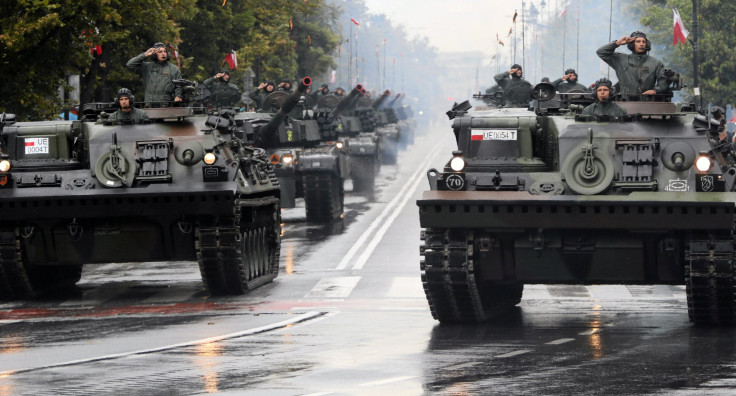European Union Military Force Needed To Fight Off Russia, Eastern Europe Nations Warn

The European Union needs an army to defend itself against potential threats from Russia and control a growing refugee crisis, according to several Eastern Europe leaders. The renewed push for a EU military force comes as European leaders are debating how to move forward with the United Kingdom's proposed exit from the political and economic union.
Hungary’s right-wing Prime Minister Viktor Orban championed the idea of an EU army and urged Angela Merkel, the German Chancellor, to begin talks on the controversial issue. His remarks came Friday during a five-nation gathering in Warsaw ahead of a September summit on the EU's future after the June 23 Brexit referendum.
"We should list the issue of security as a priority, and we should start setting up a common European army," Orban said.
Bohuslav Sobotka, prime minister of the Czech Republic, also called for "a discussion about creating a common European army," while Poland's powerful rightwing leader Jaroslaw Kaczynski said a common military could be powerful.
Merkel said the British referendum showed that there needed to be better communication with the bloc, but she has stopped short of supporting a EU army in the past.
It is "important to listen to each other in different formats," Merkel said. "Because Britain's exit is not just any event — it is a deep break in the European Union's history of integration, and so it is important to find a careful answer."
The European Union already coordinators on military issues but does not have its own force. Creating an army would require unanimous approval from all member states, a nearly impossible feat for something that would likely call for a towering budget. Critics claim the proposed army would undermine member states' own military forces or lead to competition and duplication with NATO. The former British ambassador to Washington, Christopher Meyer, has said "pigs will fly before the EU creates an army."
But Russia's 2014 annexation of the Crimean peninsula from Ukraine and its continued intervention in the Baltic region could persuade more NATO and EU members to consider stronger military tactics.
Russian leaders have called a potential European Union a "provocative" proposal that would "not provide any additional security," Vice reported in March.
© Copyright IBTimes 2024. All rights reserved.






















